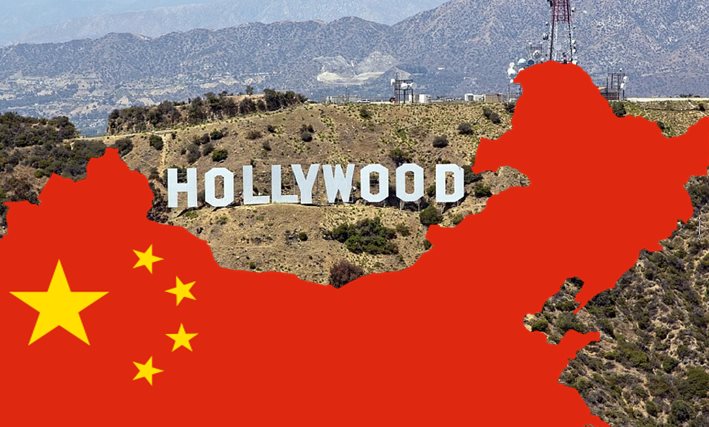China announced Thursday it would “moderately reduce” imports of Hollywood films, opening a new front in its ongoing trade war with the United States just hours after President Donald Trump’s record tariffs took effect, Bloomberg reports.
The move signals a potential expansion of the conflict beyond goods to include American services, where the US maintains a trade surplus with China.
The announcement, initially floated by influential Chinese bloggers earlier in the week, sent ripples through the entertainment industry. Shares of major media conglomerates including Walt Disney Co., Paramount Global, and Warner Bros Discovery Inc. experienced declines in pre-market trading, contributing to a broader market downturn.
While China stopped short of an outright ban on American movies, the decision marks a significant shift in Beijing’s approach to the trade war. The move suggests that Beijing may now target American services as retaliatory measures, opening up a new range of potential conflicts. The US enjoys a service trade surplus with China, primarily driven by revenue from travel, intellectual property royalties, and transportation.
A state-media affiliated account, previously used to signal Beijing’s position on trade issues, cited an expert this week stating that China is considering targeting services.
The escalation in trade tensions has coincided with increasing friction on the people-to-people front. Chinese officials issued warnings on Wednesday advising citizens against traveling to the US, and cautioning students about security risks in “certain US states,” a notable departure from President Xi Jinping’s earlier efforts to improve people exchanges between the two countries.
China has been a critical market for Hollywood studios for decades. Following the release of the first US film in China in 1994, studios became increasingly reliant on the Chinese market for growth, particularly as box office revenue in the West stagnated and streaming services gained popularity. However, Chinese regulators have tightened access to theaters in recent years, suggesting that American films may not always align with Communist Party values.
The number of approved US film releases in China peaked at over 60 in 2018, but has declined steadily through 2021, according to data from Chinese ticketing service Maoyan Entertainment. Escalating trade and political tensions, coupled with the growing popularity of local-language films in China, have contributed to the decline in American film releases.
For example, despite opening at No. 1 in most countries, “Deadpool & Wolverine” debuted at No. 2 in China, where the top-grossing film that weekend was the Chinese comedy “Successor.” The shift reflects a broader trend where homegrown films are increasingly dominating the Chinese box office.
Recently, Chinese film fans have been enthusiastic about “Ne Zha 2,” a domestically produced animated film based on Chinese mythology.
Despite the current restrictions, some optimism remains that Hollywood blockbusters may once again secure more screen time in China, driven by policymakers’ push to boost domestic consumption. However, the latest move signals a renewed challenge for American studios seeking to tap into the world’s second-largest economy.










The latest news in your social feeds
Subscribe to our social media platforms to stay tuned